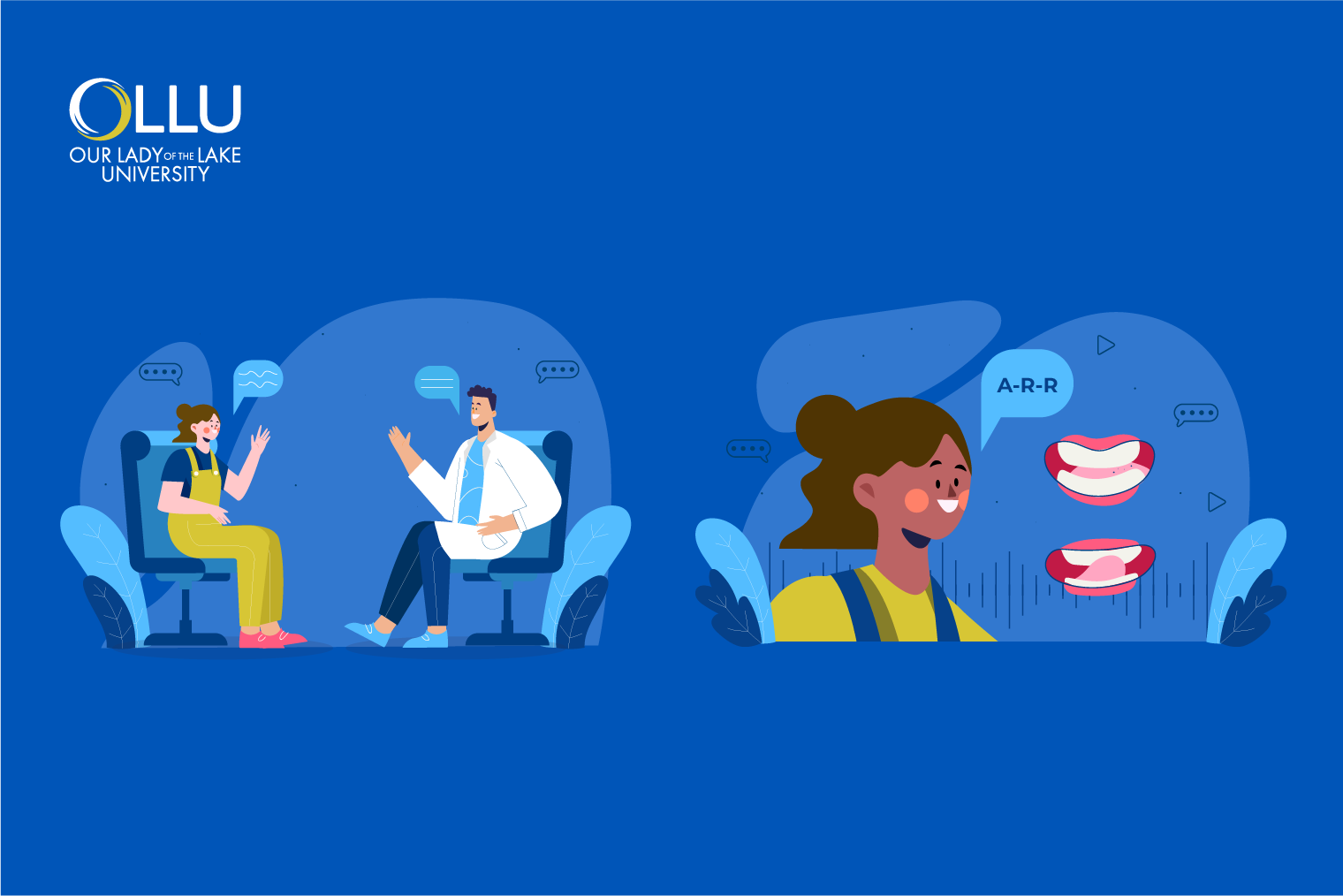How a Speech Pathologist Can Facilitate Stroke Recovery and Rehabilitation
How a Speech Pathologist Can Facilitate Stroke Recovery and Rehabilitation
Blog Article
Just How a Speech Pathologist Can Help Improve Interaction Abilities
Reliable interaction is a foundation of specialist and personal success, yet many individuals encounter challenges that impede their ability to share themselves plainly. A speech pathologist is furnished to deal with these obstacles via targeted analysis and intervention methods tailored to every person's requirements. By using evidence-based restorative strategies, they not only work to boost speech and language disorders however also boost general communicative capability. Comprehending the diverse duty of a speech pathologist exposes exactly how their expertise can transform lives, inviting a closer exam of the specific approaches and results connected with their practice.
Understanding Communication Problems
Recognizing interaction disorders is important for identifying exactly how they impact individuals' capacity to reveal themselves and involve with others. Interaction conditions encompass a wide variety of troubles that influence speech, language, and social communication, often hindering reliable communication. These problems can occur from numerous aspects, including neurological conditions, developing delays, physical impairments, or mental problems.
Speech disorders might show up as difficulties in voice, fluency, or expression production, impacting how words are noticable or talked. Language conditions, on the other hand, involve obstacles in understanding or making use of language, which can hinder both spoken and non-verbal communication. Social communication problems are characterized by difficulties in the practical elements of interaction, such as taking turns in conversation or understanding social signs.
The consequences of interaction problems are profound, influencing not just the person's capacity to convey emotions and thoughts but additionally their social partnerships, instructional possibilities, and general top quality of life. Recognition of these conditions can foster empathy and assistance, encouraging efficient methods for communication and interaction. Recognizing the intricacies of communication disorders is a critical step in the direction of promoting inclusivity and resolving the needs of those impacted.
Function of a Speech Pathologist
Speech pathologists regularly play a crucial duty in treating and diagnosing interaction disorders, using a series of evidence-based techniques tailored per person's requirements. These experts work with people throughout the lifespan, from children with speech hold-ups to grownups recovering from strokes or distressing brain injuries. Their competence encompasses a range of interaction concerns, including articulation, fluency, language, and voice disorders.
In therapeutic settings, speech pathologists make use of organized treatments made to enhance interaction abilities. They may apply techniques such as speech workouts, language games, and social communication training to facilitate improvements in responsive and expressive language capabilities. Speech Pathologist. Furthermore, they educate customers and their households about efficient interaction techniques and adaptive methods to browse daily communications
Beyond direct therapy, speech pathologists collaborate with other healthcare caregivers, professionals, and instructors to ensure an extensive approach to treatment. They support for customers by supplying resources and support, making it possible for people to achieve their interaction objectives and enhance their overall quality of life. As experts in the field, speech pathologists are necessary in cultivating efficient communication, advertising self-reliance, and enhancing social involvement for those with interaction challenges.
Analysis and Medical Diagnosis Refine
The assessment and medical diagnosis procedure performed by speech pathologists commonly involves a comprehensive examination to recognize interaction disorders precisely. This procedure begins with an in-depth medical history, where the clinician gathers important info concerning the person's medical, academic, and developmental history. Comprehending the context of the person's interaction difficulties is necessary for an exact diagnosis.
Complying with the medical history, speech pathologists use casual evaluations and standardized tests to review different aspects of interaction, including speech noise manufacturing, language comprehension, meaningful language, and social interaction skills. These evaluations are customized to the person's age and details issues, giving valuable data for evaluation.
Monitoring is likewise a critical element of the analysis procedure, as it allows the clinician to see direct just how the specific communicates in natural setups. Furthermore, interviews with family participants and instructors can offer insight into the individual's communication difficulties across different environments.
Once the examination is full, the speech pathologist synthesizes the findings to figure out a diagnosis and suggest proper interventions. This detailed assessment procedure makes certain that individuals obtain targeted support customized to their distinct communication requirements, laying the foundation for efficient therapeutic techniques.
Restorative Techniques and Techniques
Many healing methods and approaches are employed by speech pathologists to deal with a selection of interaction disorders efficiently. One commonly utilized method is expression treatment, which concentrates on dealing with speech sounds with rep and aesthetic hints. This technique is specifically advantageous for people with speech sound problems.
One more efficient strategy is language intervention, which enhances both expressive and receptive language skills. This may involve interactive tasks that advertise vocabulary development, sentence framework understanding, and conversational skills. Additionally, speech pathologists usually utilize social skills training to improve practical language abilities, making it possible for individuals to navigate social communications a lot more successfully.
Fluency shaping and stuttering alteration strategies are particularly made to help those experiencing fluency disorders. These methods assist clients develop smoother speech patterns and take care of the psychological and physical components of stuttering.
In addition, augmentative and alternative interaction (AAC) systems are employed for individuals with severe interaction disabilities. These systems, which can consist of click to investigate motions, signs, or digital devices, provide crucial assistance for efficient interaction.
Benefits of Speech Treatment

Furthermore, speech therapy can assist in developing crucial listening and understanding skills, fostering far better communication in discussions. People with cognitive-communication conditions can also benefit, as treatment concentrates on enhancing memory and analytic abilities, essential for reliable communication.
An additional essential aspect is the emotional assistance provided during therapy sessions. Speech pathologists develop a risk-free atmosphere, motivating patients to get rid of stress and anxiety and stress relevant to their communication problems. This assistance can result in improved self-worth and overall psychological wellness.
Moreover, very early intervention with speech therapy can protect against more complications, ensuring that individuals reach their check this site out full communicative capacity. Overall, the advantages of speech treatment prolong beyond mere speech renovation, favorably influencing different dimensions of life for those affected by interaction troubles.
Conclusion
In summary, speech pathologists play a critical function in resolving communication disorders through assessment, diagnosis, and tailored healing interventions. By employing evidence-based methods, these specialists enhance individuals' speech and language capacities, promoting boosted clearness, fluency, and social interaction skills. The benefits of very early treatment emphasize the relevance of looking for assistance from speech pathologists, as their competence can significantly boost communicative possibility, inevitably resulting in higher success in both specialist and individual balls.

Speech pathologists regularly play a crucial duty in identifying and dealing with interaction disorders, utilizing a variety of evidence-based see here methods customized to each person's needs. As professionals in the field, speech pathologists are vital in fostering efficient communication, advertising independence, and improving social engagement for those with interaction obstacles.

Report this page